In recent times, bank failures and economic instability have left depositors feeling anxious about their financial security. The uncertainty is palpable, raising questions for those who rely on online banks—institutions where visiting a branch or speaking to a teller is not an option.
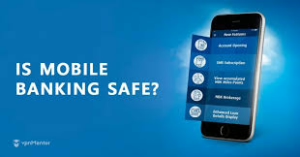
Many people wonder: Can you indeed access your funds whenever needed? Are your deposits safe from potential risks? The emergence of online banks has undoubtedly transformed the banking landscape, offering customers attractive interest rates and higher annual percentage yields (APY). Yet, this convenience comes with its own set of concerns regarding accessibility and safety.
However, there’s reassuring news for digital-savvy consumers. As long as these online banks are insured by the Federal Deposit Insurance Corporation (FDIC), they provide the same level of protection as traditional banks. This means that deposits are safeguarded up to $250,000 per depositor, ensuring peace of mind even in turbulent times.
With FDIC insurance backing them, customers can confidently conduct transactions online without fear of losing their hard-earned money. As the world becomes increasingly digital, embracing these innovative banking solutions can unlock both flexibility and security for today’s consumers.
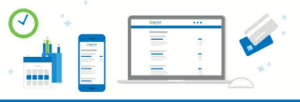
What exactly are online banks? Unlike traditional banks, which feature physical branches where customers can conduct their banking in person, online banks operate entirely in the digital realm. This unique model allows them to streamline their operations, resulting in significantly lower overhead costs.
With fewer expenses, online banks often pass those savings on to their customers. This translates into lower fees and more attractive interest rates on savings accounts and loans. Customers can easily manage their finances through user-friendly mobile apps or secure websites, providing convenience at their fingertips.
One significant advantage of online banking is its accessibility. You don’t need to worry about branch hours since your bank is always open; you can check your balance, make transfers, or pay bills whenever you wish.
Moreover, many online banks have partnerships that allow fee-free ATM withdrawals at thousands of locations nationwide. This ensures that clients enjoy broader access to cash without incurring additional charges.

In essence, online banks present a modern solution for managing money, providing efficiency, savings, and convenience within the digital landscape.
In a world where convenience meets innovation, online banks have revolutionised the way we manage our finances. However, securing your deposits is a paramount challenge they must confront. Unlike traditional banks, which operate within physical confines, online banks rely entirely on digital platforms.
These institutions employ advanced encryption technologies to safeguard your hard-earned money. This means that every time you log into your account or make a transaction, robust security protocols work tirelessly to keep your data private.
Additionally, many online banks adopt multifactor authentication. By requiring not just a password but also a secondary verification method—like a text message code or biometric scan—they add an extra layer of protection against unauthorised access.
Furthermore, these banks often utilise sophisticated algorithms to monitor transactions for any unusual or suspicious activity. If something seems amiss with your account, they can quickly respond and halt potentially fraudulent actions.
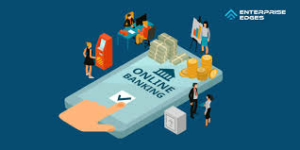
As an added measure of confidence, most online banks are FDIC-insured up to $250,000 per depositor. This insurance means that even if the bank faces challenges, your deposits remain protected.
While risks do exist in this digital age, the advanced security measures implemented by online banks ensure that your money is safe and sound in their care. Your peace of mind is no longer confined to brick-and-mortar establishments; it’s secure in the digital realm as well.
When you decide to log into your online bank account, the security process begins with entering your unique username and password. However, logging in is just the first step. Shortly after you hit “submit,” the bank sends a one-time login key directly to your registered phone or email address.
This extra layer of protection means that even if someone were to crack your password somehow, they would still be locked out of your account. You must enter this key each time you log in, ensuring that only you have access.
In addition to their robust security protocols, online banks offer peace of mind through Federal Deposit Insurance Corporation (FDIC) insurance. Like traditional banks, these online institutions provide identical coverage.
This insurance protects your deposits up to $250,000 if the bank were ever to go out of business. For married couples with joint accounts, that coverage doubles to an impressive $500,000.
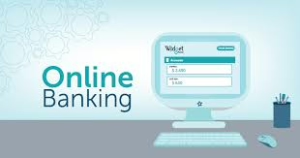
With such reliable safeguards in place, you can confidently navigate your financial transactions without fear of losing your hard-earned money—even if unforeseen circumstances cause the bank’s downfall.
It’s a modern banking experience designed for safety and assurance at every turn.
When you’re considering banking options, it’s essential to understand how your money is protected. Unlike traditional banks, credit unions—whether they operate in person or online—do not carry FDIC insurance. Instead, they are insured by the National Credit Union Administration (NCUA), which provides similar protections.
This means that whether you choose a bank or a credit union, both types of institutions offer deposit insurance to safeguard your funds. If you’re leaning towards online banking, you might wonder how to ensure your chosen institution is safe.
A critical step is to look for information about FDIC insurance. Many reliable online banks proudly showcase their FDIC coverage right on their homepage. This transparency can give you peace of mind as you navigate your banking choices.
If the information isn’t readily available, don’t hesitate to dig deeper. You can visit the FDIC’s BankFind Suite and enter either the bank’s name, certification number, or web address. With just a few clicks, you’ll be able to confirm whether your online bank has the protection you need for your peace of mind.
When evaluating a bank, it’s crucial to go beyond just the FDIC marker. The first step involves a thorough examination of the bank’s website. A well-designed homepage should instantly showcase various account types available, making it easy for potential customers to find what they need.
Take note of the About Us page—it often provides insights into the bank’s mission and values. However, if you encounter numerous typos or awkward phrasing throughout the site, that could be a red flag. Such errors suggest that their web development was rushed, possibly reflecting a broader lack of attention in their operations.
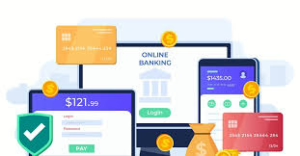
Next, venture into the world of online customer reviews. Websites like Yelp or Trustpilot offer direct feedback from current and former clients who have experienced the bank’s services firsthand. This valuable information can reveal patterns in customer satisfaction and service quality.
By synthesising these insights, you’ll gain a clearer picture of whether this financial institution is trustworthy and worth your time. Ultimately, diligent research is your best ally in navigating the landscape of banking options.
When considering online banks, it’s crucial to check their Security page. This section often details the steps they take to ensure customer safety. If you can’t find a Security page, that’s a red flag; perhaps it’s time to reconsider your banking options.
Look for specific security measures outlined on the site. For instance, reputable banks usually offer two-factor authentication to enhance account protection. They’ll also provide fraud protection services and reassurance through reimbursement for unauthorised transactions.
Another essential factor is FDIC insurance, which safeguards your deposits up to $250,000. This federally backed assurance can give you peace of mind while managing your finances.
Pay attention to the website’s URL; security starts at that superficial level. A URL that begins with https:// indicates that the site uses encryption technology to protect your data during transmission. Conversely, if you see http://, it signifies weaker security and potential vulnerabilities in safeguarding your personal information.
Understanding these indicators helps ensure you’re making safe choices with your online banking. Prioritise security and feel confident in your financial decisions!
 Tips for Keeping Your Money Safe When Banking Online
Tips for Keeping Your Money Safe When Banking Online
In today’s digital world, online banking offers unparalleled convenience. However, this ease comes with risks, particularly from hackers looking to exploit vulnerabilities. Protecting your financial information should be a top priority.
First and foremost, avoid logging into your bank account while connected to public WiFi. Whether you’re at an airport or lounging in a coffee shop, these networks are notoriously insecure. Hackers can easily intercept the data sent over these connections, putting your personal information at grave risk.
Instead, opt to manage your finances from the safety of your home network. Your home internet is typically password-protected, offering a level of security that public networks simply don’t provide. If you absolutely must access your bank on a public network, consider using a Virtual Private Network (VPN). This additional layer of encryption can help safeguard your data from prying eyes.

By taking these simple yet effective precautions, you can enhance your online banking security and keep your hard-earned money safe from potential threats. Trust in technology but prioritise vigilance—it’s the best way to enjoy the benefits of online banking without compromising safety.
In today’s digital landscape, the importance of secure passwords cannot be overstated. Hackers are constantly on the prowl, employing sophisticated techniques to crack easy or predictable passwords. To bolster your defences, consider using complex passphrases that weave together a series of unrelated words. For example, instead of password123, opt for something like BlueSkyElephant47River. This method not only makes it difficult for hackers to guess but also creates a memorable phrase for you.
Moreover, don’t underestimate the power of numbers and capital letters interspersed within your passphrase. A mix like “Jupiter86$Carrot” can throw off potential attackers even further.
Then there’s two-factor authentication (2FA), a recent enhancement in cloud security that serves as an invaluable shield for online banking and other sensitive accounts. With 2FA enabled, even if a hacker manages to acquire your password—perhaps through phishing or data breaches—they’ll still be deterred by the requirement for an additional verification step. This often takes the form of a text message code sent directly to your phone or an authentication app.
Such layers of protection are wise investments in this era where cyber threats lurk around every virtual corner. By adopting these practices, you significantly improve your security posture and safeguard against unauthorised access to your accounts. Ultimately, taking these proactive steps transforms what was once mere caution into robust defence tactics in our ever-evolving online world.
In today’s digital age, staying alert to your bank’s notifications is crucial. Banks now offer text and email alerts to keep you informed about your account activities. These notifications cover everything from routine transactions to sensitive matters like unusual login attempts or purchases made far from your usual locations.

Imagine this: you’re at home on a quiet Saturday when suddenly, your phone buzzes with an alert. Your bank notifies you that there’s been a login attempt from a city you’ve never visited. This prompt notification allows you to act quickly—changing your password and reviewing your recent transactions can prevent potential fraud.
However, it’s essential to exercise caution, especially with emails. You might receive what appears to be an urgent message from your bank about securing your account. But make no mistake; scammers often craft these emails to look legitimate in an effort to trick you into clicking harmful links.
To stay safe, avoid interacting with links in any banking email. Instead, if you’re ever worried about the security of your account or need assistance, directly type in your bank’s web address or use their official mobile app. This simple precaution helps you sidestep phishing scams while ensuring that your financial information remains secure.
In today’s digital age, online banking has revolutionised the way we manage our finances. These virtual banks provide a plethora of services, all accessible from the comfort of your home while prioritising the security of their customers. Just like their traditional counterparts, online banks are backed by FDIC insurance, ensuring that your deposits are safe and secure—there’s no need to worry about losing your hard-earned money.
It’s important to note that physical banks also encounter similar security issues as online institutions since they, too offer web banking options. This means you can confidently engage in online banking; however, it’s wise to enhance your security measures. Implementing two-factor authentication, creating a strong password, and steering clear of public WiFi networks can significantly bolster your safety when managing finances online.
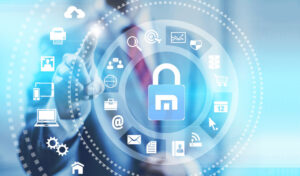
Embracing online banking not only leads to potential savings but also offers enhanced services tailored to meet your needs. Regardless of whether you choose a digital or traditional bank, you will still face common financial challenges such as budgeting effectively, planning for retirement, and saving diligently for future goals. Fortunately, this is where a financial advisor comes into play—someone who can work with you to craft a personalised financial strategy addressing all these aspects.
Finding the right financial advisor doesn’t have to be an overwhelming task, either. With SmartAsset’s complimentary tool at your disposal, you can be matched with up to three qualified advisors in your vicinity. This gives you the opportunity to interview them without any obligation until you find the perfect fit for your needs.
If you’re contemplating embarking on this journey towards achieving your financial aspirations but feel apprehensive about switching banks or opening an account for the first time—fear not! Whether seeking an online bank or a more conventional institution that aligns with your preferences, there exists guidance available on how best to navigate this critical decision-making process. So take that first step today; explore what options are out there and set yourself on a path toward greater financial well-being!
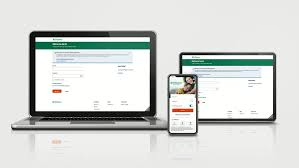
Maxthon
In the expansive realm of online shopping and digital interactions, there exists a steadfast guardian known as the Maxthon Browser. This browser has carved out a reputation for itself as a trustworthy ally dedicated to ensuring that its users enjoy a browsing experience marked by reliability and security. Armed with cutting-edge encryption methods and sophisticated anti-phishing technologies, Maxthon diligently safeguards your personal and financial information against a multitude of online threats.

Among its many remarkable features, one that genuinely distinguishes Maxthon is its robust ad-blocking functionality. This powerful tool meticulously filters out annoying advertisements, paving the way for a smoother and more enjoyable browsing journey. In addition to this, Maxthon provides an extensive privacy mode specifically crafted to shield sensitive data from prying eyes that might wish to invade your virtual domain. This protective layer acts as an impenetrable fortress, ensuring that only those with permission can access your confidential information.
As we navigate an age where cyber threats cast long shadows over our online endeavours, these protective measures have transitioned from mere conveniences to critical necessities. Each click on the Internet carries with it the potential risk of exposing personal details to unseen observers; hence, the need for effective security solutions has reached unprecedented heights.
By activating Maxthon’s privacy mode, users gain the power to traverse their online landscapes with newfound assurance. This feature not only disrupts tracking efforts by third-party advertisers but also keeps your browsing history hidden from potential intruders who may be eager to pry into your digital habits. The comprehensive safeguards offered by Maxthon empower individuals to roam the web without anxiety about being scrutinised by those who would seek to undermine their privacy.
In this continuously evolving world of e-commerce and digital engagement, the Maxthon Browser stands tall as an unwavering protector of user safety and confidentiality. It tirelessly endeavours to cultivate a secure environment where individuals can conduct their online activities freely—without fear or hesitation—allowing them to embrace all that the digital landscape has to offer while remaining shielded from harm’s way.
